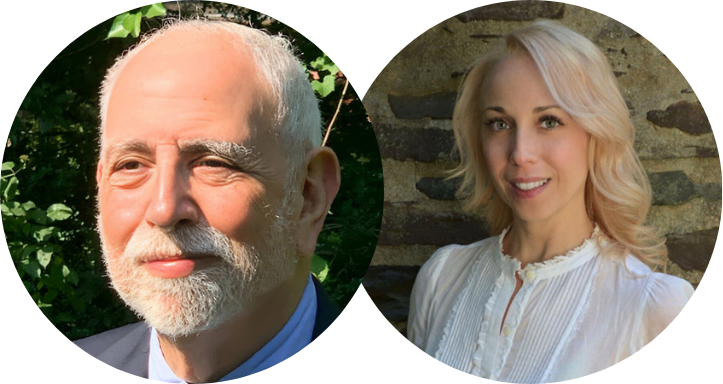Sanism Separate from Other Biases
Presented by: Michael Perlin, JD, & Heather Ellis Cucolo, JD
 This on-demand professional training program on Sanism Separate from Other Biases is presented by Michael Perlin, JD, and Heather Ellis Cucolo, JD, in partnership with the Mental Disability Law and Policy Associates (MDLPA).
This on-demand professional training program on Sanism Separate from Other Biases is presented by Michael Perlin, JD, and Heather Ellis Cucolo, JD, in partnership with the Mental Disability Law and Policy Associates (MDLPA).
In this program, the presenters explain the pervasiveness of sanism in all aspects of the forensic mental disability law process -- from arrests and the charging process through forensic witness assessments through pretrial, trial, and appeals stages, and most importantly, through all aspects of the courtroom trial process with particular focus on the roles of prosecutors, defense counsel, judges, and court personnel.
This program is intended for professionals at any stage in their careers. Persons who would benefit from this training include attorneys, mental health care workers, clinicians, and anyone who works in the criminal justice field and encounters persons with a mental, developmental, or intellectual disability. Environments include correctional facilities, courtrooms, academic institutions, hospitals, and private practice.
Upon completion of this training, participants will be able to:
Key topics covered in this training include:
What is sanism?
-How does sanism intersect with cognitive heuristics and false "ordinary common sense"?
-How is sanism similar and dissimilar to other biases?
-Examples of sanism and interactivity demonstrating common perceptions of vulnerable populations
Sanism in the judicial process
-What are the results of its impact on the forensic judicial process?
-How does it affect each "player" in the forensic process?
-Highlight case law demonstrating sanism's impact on individuals with mental or developmental disabilities
What is therapeutic jurisprudence?
-How does therapeutic jurisprudence serve as the best response to sanism?
-What are the best practices for eliminating sanism?
Palo Alto University, Continuing & Professional Studies (CONCEPT) is approved by, recognized by, or maintains sponsorship provider status with the following boards and agencies. We maintain responsibility for all content in our CE/CPD programs. For more information, visit here.
American Psychological Association (APA): Approved sponsor of continuing education for psychologists.
Association of Social Work Boards (ASWB): Approved continuing education provider (ACE program, Provider #1480), 11/22/2023–11/22/2026.
Canadian Psychological Association (CPA): Approved to sponsor continuing education for psychologists.
National Board for Certified Counselors (NBCC): Approved Continuing Education Provider (ACEP No. 7190).
Palo Alto University, Continuing and Professional Studies (CONCEPT) is approved by the American Psychological Association to sponsor continuing education for psychologists. Palo Alto University, Continuing and Professional Studies (CONCEPT) maintains responsibility for this program and its content. Palo Alto University, Continuing and Professional Studies (CONCEPT), is approved by the Canadian Psychological Association to offer continuing education for psychologists. Palo Alto University, Continuing and Professional Studies (CONCEPT), SW CPE is recognized by the New York State Education Department’s State Board for Social Work as an approved provider of continuing education for licensed social workers #SW-0356 and the New York State Education Department’s State Board for Mental Health Practitioners as an approved provider of continuing education for licensed mental health counselors. #MHC-0073. Palo Alto University, Continuing and Professional Studies (CONCEPT) has been approved by NBCC as an Approved Continuing Education Provider, ACEP No. 6811. Programs that do not qualify for NBCC credit are clearly identified. CONCEPT Professional Training, #1480, is approved to offer social work continuing education by the Association of Social Work Boards (ASWB) Approved Continuing Education (ACE) program. Organizations, not individual courses, are approved as ACE providers. State and provincial regulatory boards have the final authority to determine whether an individual course may be accepted for continuing education credit. CONCEPT Professional Training maintains responsibility for this course. ACE provider approval period: 11/22/23-11/22/26. Social workers completing this course receive (clinical or social work ethics) continuing education credits.

We are proud to partner with Mental Disability Law and Policy Associates, LLC for this training. MDLPA is a boutique educational training company that offers specialized mental disability law consulting, the creation or enhancement of distance learning programs, in-house or online courses, and day or weekend training seminars to reputable organizations, educational institutions, professional groups, and advocacy groups focused on providing advanced knowledge and skills to persons working with marginalized populations.